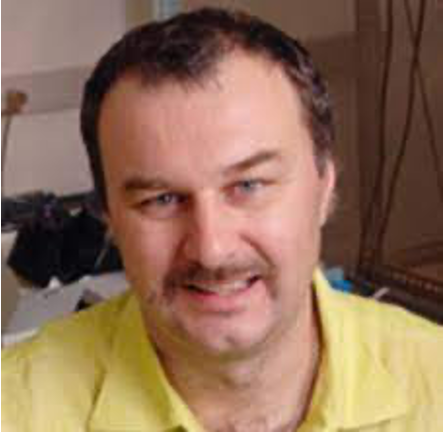Academic lectures:Calcium signaling and neurodegeneration
Reporter by Dr. Ilya Bezprozvanny,Dr. Meewhi Kim
Position: Head of the Laboratory of Molecular Neurodegeneration in Peter the Great St Petersburg State Polytechnical University, St Petersburg, Russian Federation
Invited by Professor Li Weidong from the Brain Health and Brain Technology Center at Global Institute of Future Technology
Time: 16:30, Jan. 9, 2025 (Beijing Time)
Location: Auditorium 202, East Wing of Pao Yue-Kong Library
Summary of the Report
Calcium signaling and neurodegeneration —Ilya Bezprozvanny, PhD, D.Sci
Peter the Great St Petersburg Polytechnical University, St Petersburg, Russia
Dysregulation of neuronal calcium signaling plays a key role in pathogeneiss of neurodegenerative disorders. My laboratory worked extensively on the importance of calcium signaling in pathogenesis of Huntington’s disease (HD), spinocerebellar ataxias, and Alzheimers disease (AD). In my talk I discuss 2 recent results from my laboratory related to AD pathogenesis. First result is related to our discovery of connection between dysregulated calcium signaling and impaired autophagy in AD neurons (J. Neuroscience, 2023; Life, 2023)). Second result is related to an idea that positive allosteric modulators of SERCA pump may play a beneficial effects in normalization of neuronal calcium signaling and may be useful as potential neuroprotective agents in AD and other neurodegenerative disorders (IJMS, 2023a; IJMS, 2023b; BBRC, 2024; J. Neuroscience, submitted). Implications of these recent findings for development of potential treatments for AD and other neurodegenerative disorders will be briefly discussed in my talk.
Biophysical and computational studies of neurodegenerative proteins—Meewhi Kim, PhD
Peter the Great St Petersburg Polytechnical University, St Petersburg, Russia
Applications of biophysical and computations techniques to study properties of proteins related to neurodegeneration can provide important information relevant for understanding pathogeneis of these disorders. By applying methods of structural biology, I solved a crystal structure of polyQ-containing regions of Huntingtin and Ataxin-3 proteins (Structure, 2009; Prion, 2013; FEBS OpenBio, 2016). By applying bioinformatics and structural modeling methods, I proposed a mechanistic explanation for variability in pathogenic threshold observed within a family of polyQ-expansion disorders (Molecular Neurodegeneration, 2014; BBRC, 2021; BBRC, 2025). By applying structural modeling I proposed existence of 2 conformations of gamma-secretase involved in processing of APP and generation of Abeta peptides (IJMS, 2021; IJMS, 2023) and predicted novel biological function of Abeta peptides (BBRC, 2024). These findings and their implications for polyQ disorders and Alzheimer’s disease pathogenesis will be briefly discussed in my talk.
Personal Profile
Dr. Ilya Bezprozvanny is a Professor and Head of the Laboratory of Molecular Neurodegeneration in Peter the Great St Petersburg State Polytechnical University, St Petersburg, Russian Federation. In 2010 he obtained his habilitation and received a D.Sci degree in Cell Biology from the Institute of Cytology Russian Academy of Science in St Petersburg, Russian Federation. In 2011 he was awarded a “megagrant” (Russian equivalent of 1000 Talents program grant in China) from the Russian Ministry of Science and Technology and opened the Laboratory of Molecular Neurodegeneration in the Peter the Great St Petersburg State Polytechnical University, St Petersburg, Russian Federation (his alma mater). In September 2024 he resigned his Professor position at UT Southwestern Medical Center at Dallas to focus fully on his work in the Russian Federation. Dr Bezprozvanny has broad research interest in basic and translational molecular physiology and neuroscience. He is a leading world expert in the area of neuronal calcium signaling synaptic biology and translational studies of neurodegenerative disorders such as Alzheimer’s disease, Huntington’s disease and spinocerebellar ataxias.

Dr. Ilya Bezprozvanny
Dr. Meewhi Kim is a research scientist in the Laboratory of Molecular Neurodegeneration in Peter the Great St Petersburg State Polytechnical University, St Petersburg, Russian Federation. In November 2024 she resigned her Assistant Professor position at UT Southwestern Medical Center at Dallas to continue her work in the St Petersburg State Polytechnical University, Russian Federation. Dr Kim has broad research interest in biophysics, structural biology and computational neuroscience. She is a leading expert in the area of biophysics and computational studies of proteins related to the neurodegenerative disorders such as Alzheimer’s disease, polyQ-expansion disease and Parkinson disease.

Dr. Meewhi Kim







